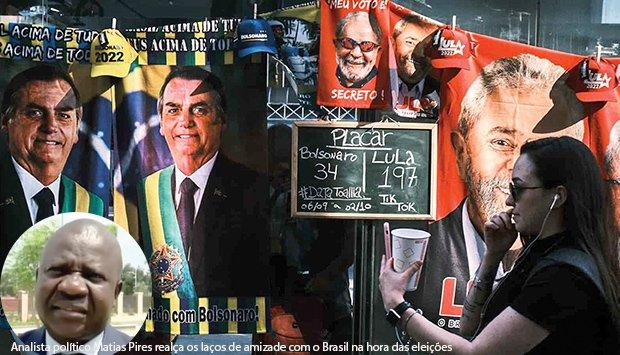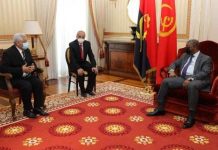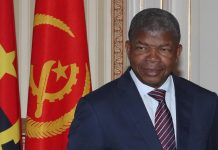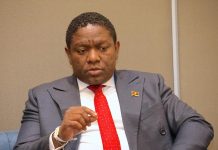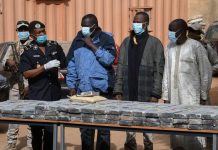Africa-Press – Angola. Brazilians elect yesterday, in the second round of the election, Jair Bolsonaro or Lula Inácio da Silva as President of the Republic, after a heated campaign, completely filled with curious notes. The situation in Brazil, although a matter of domestic politics, is linked to Angola and its people, with historical ties, formed in the course of the National Liberation Struggle.
From the very beginning of Angola’s existence as an independent nation, Brazil showed respect and a political-diplomatic sense by recognizing “our Independence proclaimed on November 11, 1975, by the Founder of the Nation António Agostinho Neto.
Thus, at a time when the Brazilian people are celebrating a moment of celebration in honor of democracy, as recently “we marked the world by holding fair free elections, in which the MPLA won and re-elected João Lourenço as President of the Republic , Jornal de Angola shares with its readers the interpretation of political analyst and university professor Matias Pires.
For the academic, despite the inclinations of one or another candidate, the sovereignty to decide who offers the best guarantees to occupy the highest seat in Brazil is the Brazilian people. Whoever is elected, he said, is the one with whom the Angolan authorities should devote all their attention to continue working towards the deepening of the already traditional special relations that unite the two peoples and States.
Historical precedent and the cooperation relationship
Matias Pires, before advancing, recalls, by the way, that Brazil was the first country to recognize the sovereign State of Angola on November 11, 1975, at a time when it was led by a very strong military line, but that did not prevent Ernesto Guenzel to recognize, in record time, the Independence of Angola.
This historical precedent of great importance cements one of the landmarks of the relationship between the two States and contributed to that historic moment, he said, referring to the action of the then Minister of Foreign Affairs of Guenzel, Ambassador Azaredo Silveira. On the other hand, the two States signed the General Cooperation Agreement in 1980. Therefore, there are cultural values that have been transported and that are perpetuated over time. “We see, for example, samba, which has roots in semba, in terms of gastronomy and some areas with traces of Bantu cuisine”, emphasized the university professor.
Relations between the two countries are emerging in several areas, from the Construction, Education, Defense sectors, among others. In the construction sector, for example, Matias Pires pointed out that several Brazilian companies operated in Angola, as well as in energy production, which worked on the use of the Kwanza basin, such as, at the time, Gamek.
He referred to the presence of the construction company Odebrecht, which later spread to other sectors, such as sanitation, construction of road infrastructure, urban planning and oil.
In the field of Education, Professor Matias Pires highlighted the training of staff, having indicated, by the way, the fact that Brazil is one of the main destinations for Angolans seeking training, due to the linguistic facility, and more. “Some Brazilian companies offered scholarships for this purpose, and others, through the Eduardo dos Santos Foundation, were trained in Brazil”, he emphasizes. Throughout the process of the search for definitive peace for Angola, the international policy analyst stressed that Brazil was one of the countries that sent military contingents, within the framework of the Blue Helmets, in the various United Nations missions, from UNAVEM 1, 2 and 3 and MONUA, with a total of 5,500 men, one of the largest missions in Brazil at the service of the United Nations.
Soft power
Regarding the Brazilian presence in Angola, Matias Pires highlights, based on a factual assessment, the so-called “soft power”. The specialist refers to the expansion of Brazilian churches, with emphasis on the neo-Pentecostal and universal movements, which had the support of important segments of the Angolan population.
Regarding the elections and the candidates vying for the leadership of the South American giant, Matias Pires recognizes, however, that any of the candidates has a good chance of winning the election. The academic also recalled that the contestants had the support of various figures, including artists, footballers, politicians, among others, always with a view to mobilizing the electorate.
This vote indication is important from the point of view of today’s result.
In the Cooperation chapter, the analyst pointed out that Brazil is an important country for several reasons. It must be understood that all this deserves a multisectoral assessment, which goes beyond bilateral relations. “This appreciation takes us back to the relations between the two peoples. Even before talking about the two States, we have to bear in mind that part of the black Brazilian population is of African origin, and many have roots in today’s Angolan territory”, stressed.
For the analyst, another important factor to underline is that throughout this cooperation dynamic, “what we can call the export of soft power from Brazil, for a long time, like soap operas, were part of the top of our country’s audiovisual culture, leaving marks even in our toponymy and some names of national citizens that were extracted from these soap operas”. “There are very strong cultural affinities between Angola and Brazil”, he emphasizes, stating that these dimensions were all consolidated and expanded with the signing of the strategic partnership in 2010.
Elections versus candidates
As for presidential candidates, university professor Matias Pires said that there are very strong indicators, but both Jair Bolsonaro and Lula da Silva have work done to be evaluated. Given the vastness of factors that unite us, such as cultural ties, Brazil in the hands of Lula da Silva or Bolsonaro offers guarantees of robust and consistent cooperation.
For Matias Pires, Lula da Silva, for example, when he was President of Brazil, visited practically the entire cradle continent. “She was in Angola, in 2003 and 2008, and a third time, after finishing her terms, in 2014”, she said. “Candidate Lula da Silva is a progressive politician and friend of our continent, for his inclusion and he values multilateralism.”
This situation does not represent an aversion to Jair Bolsonaro, as it is just a factual detail, typical of a historical narrative, but not a literal interpretation that this or that candidate is better or worse for bilateral ties.
Another highlight in relation to cooperation with Brazil has to do with the partnership within the Brics, which includes, in addition to Brazil, Russia, India and China and South Africa. In 2017, Angola expressed its willingness to integrate this organization at the “Life” Summit, which took place in South Africa, where President João Lourenço was a special guest.
For More News And Analysis About Angola Follow Africa-Press

